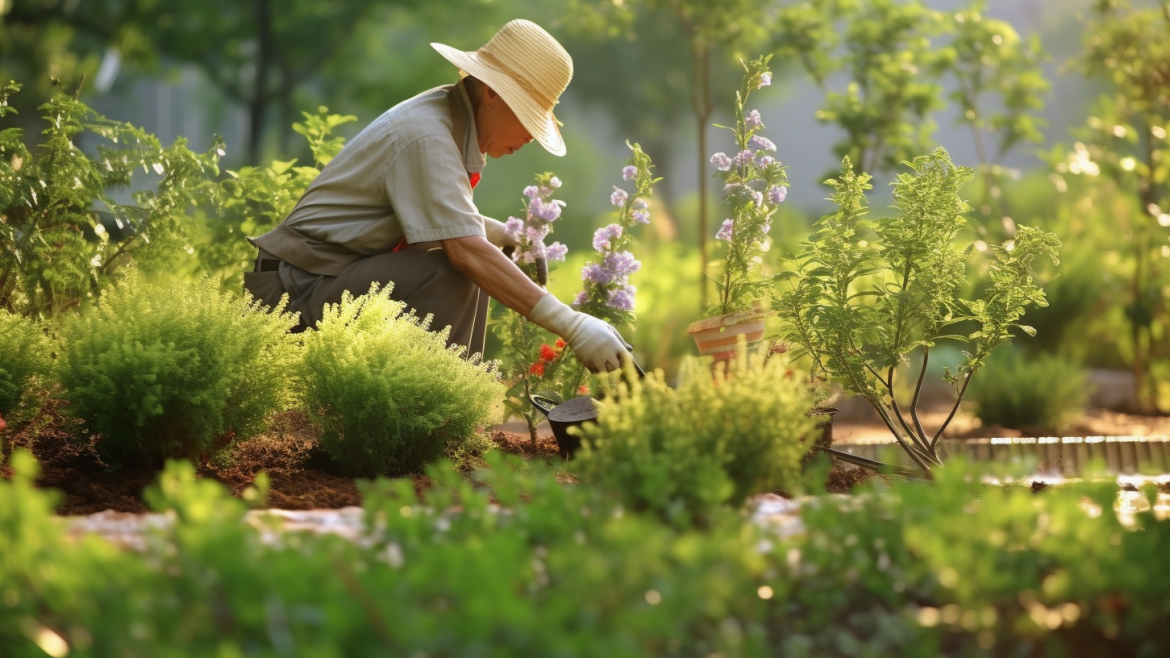Now that you’ve embarked on the rewarding journey of growing your own medicinal plant garden, it’s time to learn the secrets of nurturing your plants and ensuring they reach their full potential. A well-tended garden will not only be a stunning addition to your landscape but also a reliable source of potent, healing herbs. In this article, we’ll share expert tips on caring for your medicinal plants, from watering and fertilizing to combating pests and diseases. So let’s dive in and discover how to keep your garden healthy, thriving, and ready to provide you with nature’s finest remedies!
Watering, Fertilizing, and Soil Requirements for Medicinal Plants
Proper watering and fertilizing practices are crucial for the health and vigor of your medicinal plants. To keep your garden flourishing, follow these guidelines:
Watering: While the water requirements of each plant can vary, a general rule is to keep the soil consistently moist but not waterlogged. Water your plants deeply and infrequently to encourage strong root growth. Be mindful of your climate, as hot, dry conditions may necessitate more frequent watering.
Fertilizing: A balanced, organic fertilizer will provide the necessary nutrients for your plants to thrive. Apply fertilizer according to the specific needs of each plant and the recommendations on the product label. Avoid over-fertilizing, as this can lead to weak, leggy growth and reduced medicinal potency.
Soil: Healthy soil is the foundation of a thriving garden. Regularly add organic matter, such as compost or well-rotted manure, to maintain soil fertility and structure. Consider performing a soil test every few years to monitor nutrient levels and make necessary adjustments.
Pest Control and Disease Prevention in Medicinal Plant Gardens
Pests and diseases can threaten the health of your medicinal plants and reduce their healing properties. To protect your garden, implement these preventive and control measures:
Plant diversity: Incorporate a variety of plants in your garden to attract beneficial insects that help keep pest populations in check. Planting flowers, such as marigolds and nasturtiums, can also deter harmful pests.
Cultural practices: Keep your garden clean and free of debris to minimize hiding places for pests and diseases. Practice crop rotation and avoid planting the same plants in the same location year after year to disrupt pest and disease cycles.
Organic pest control: Employ natural methods to combat pests, such as releasing beneficial insects like ladybugs and lacewings, applying insecticidal soap or neem oil, or using barriers and traps.
Disease resistance: Choose disease-resistant plant varieties whenever possible. When watering, avoid wetting the leaves, as this can create a favorable environment for fungal diseases. Promptly remove and dispose of any diseased plant material to prevent the spread of infection.
Harvesting and Pruning Techniques for Medicinal Plants
The way you harvest and prune your plants can significantly impact their medicinal potency and overall health. Follow these tips for optimal results:
Harvesting: Harvest herbs at the peak of their potency, usually just before they bloom. Pick leaves and flowers in the morning after the dew has dried, as this is when their essential oil content is highest. Always use clean, sharp tools when harvesting to minimize damage to your plants.
Pruning: Regular pruning encourages bushier growth and promotes plant health. Remove dead or diseased plant material and trim back any overgrown branches. For perennials, cut back old growth in late winter or early spring to make way for new growth.
With the expert care tips shared in this article, your medicinal plant garden will flourish, providing you with an abundance of potent, healing herbs to support your well-being. But the journey doesn’t end here! In our final article of this series, “Using Your Medicinal Plant Harvest: Preparing and Storing Herbal Remedies,” we’ll guide you through the process of transforming your freshly harvested herbs into effective natural remedies. From drying and storing your herbs to creating infusions, tinctures, and salves, we’ll cover everything you need to know to make the most of your medicinal garden’s bounty.
So go ahead, embrace the wisdom of our ancestors, and discover the incredible healing powers hidden within your own backyard. With your thriving medicinal garden and newfound knowledge, you’ll be well-equipped to unlock the secrets of nature’s pharmacy and harness its healing powers for a healthier, more vibrant life. Happy gardening!




